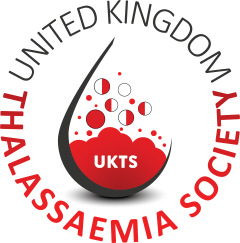Clinical Trials
Information
A clinical trial is a type of project designed to investigate the effect of a treatment or intervention on human health. Whilst interventions may be new medicines or medical devices to help treat thalassaemia, it can sometimes can also take the form in lifestyle or behavioural changes.
Clinical trials are designed to investigate whether the intervention is both safe and effective in making a positive change to thalassaemia.
Current Clinical Trials in the UK

Clinical trial FAQ’s
Why are clinical trials needed?
According to the NHS, Clinical trials help health care professionals understand how to treat a particular condition. It may benefit you, or others like you, in the future. If you take part in a clinical trial, you may be one of the first people to benefit from a new treatment.
However, there is also a chance that the new treatment turns out to be no better, or worse, than the standard treatment for thalassaemia.
Without clinical trials, treatments for conditions like thalassaemia, diabetes and others would never have been developed.
Clinical trials are the only way to ensure that new treatments are safe and effective.
Compensation
Should I take part?
Deciding whether or not to take part in a clinical trial is a personal decision; you should never feel pressured to take part.
People living with thalassaemia who have participated told us that it’s really useful to get as much information as possible about the trial, so you can make an informed decision.
You should take as much time as you need to decide whether or not to take part. You may also find it useful to talk about it with your family and friends, especially any possible impact on your personal life, work/school and family commitments.
It is important to be aware that you would not necessarily receive a new treatment by participating in a trial – you may receive standard treatment or a placebo, but this still often contributes to a positive experience by helping identify the best treatment for yourself and others.
Informed Consent
Informed consent is a process to make sure that potential participants in clinical trials:
- Can ask questions and get answers before, during and after the trial
- Fully understand the nature and purpose of the trial
- Fully understand what the trial will involve
- Are informed about potential benefits to health, risks and inconveniences
- Only agree to take part willingly
- Remain informed throughout their period of participation
This process starts when your thalassaemia doctor or researcher introduces details of the clinical trial to you. Following initial discussions, you will be given information to take home to read and consider further with family or friends, who may also attend meetings with you. You should feel confident that you have enough information to help you decide whether you want to take part in the trial, and that you have been given enough time to consider all the information and what the trial will mean to you in practical terms, such as extra appointments and tests.
You can’t be entered into a trial without giving your written consent. Where clinical trials involve children the consent process is also different and will be fully explained by the thalassaemia doctor or researcher you talk to about the trial.
If you decide to take part, you will be given a consent form to sign to say that you understand the information and give your consent willingly – you should retain a copy of this form for your own records.
Informed consent is an ongoing process throughout your period of participation in a trial.
Researchers should continue to provide information, answer your questions and advise if any new relevant information comes to light during the trial.
You can reconsider your participation at any point, or even withdraw without the need to give a reason.
Your decision must be respected and will not affect your ongoing treatment for thalassaemia.
If you have any concerns or would like to talk to someone about the trial, you can always contact our team and we will be happy to talk to you or even connect to someone who has participated in clinical trials.
It is important to be aware that you would not necessarily receive a new treatment by participating in a trial – you may receive standard treatment or a placebo, but this still often contributes to a positive experience by helping identify the best treatment for yourself and others.






